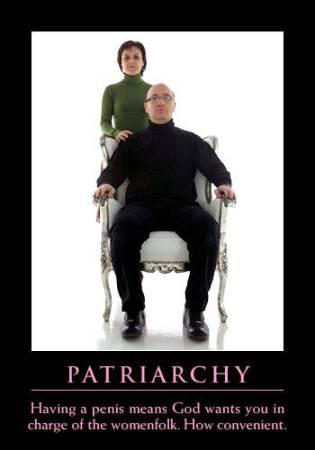Among the many problems that ail evolutionary psychology or EP, one of the most glaring is the field’s ignorance of hunter-gatherer ethnography. When evolutionary psychologists have finished testing their thoroughly modern and deeply acculturated subjects, they usually claim to have identified some deep-seated or hard-wired psychological propensity. With the supposedly universal trait in hand, evolutionary psychologists then explain how it would have made sense, and thus adaptively evolved, in “ancestral environments.”
Aside from the ex post facto or just-so storytelling that usually follows, few (if any) evolutionary psychologists have intensive knowledge of hunter-gatherers. Consequently, evolutionary psychologists freely speculate about ancestral environments. While hunter-gatherers are imperfect proxies for the evolutionary past (and certainly are not static exemplars of that past), they at least provide us with constraining data.
When evolutionary psychologists ask themselves how some emotional trait or psychological propensity might have worked in ancestral environments, their first methodological step should be to evaluate or test the trait using the hunter-gatherer ethnohistoric record. The next step should be to evaluate or test the trait using primate studies, and the third should be testing with the hominin archaeological record. Because most evolutionary psychologists skip all three steps (or are largely ignorant of these three constraining datasets), they tell speculative just-stories about “ancestral environments.”
If an allegedly universal trait or propensity (1) is not found or is not significant among hunter-gatherers, (2) is not found or is not significant among non-human primates, and (3) is not evidenced by hominin archaeology, the trait-propensity probably did not evolve as an adaptation in ancestral environments. Moreover, if we can archaeologically or historically identify places and times where the trait-propensity appears and subsequently develops, the trait-propensity probably is cultural or learned.
Eschewing this methodology, evolutionary psychologists often mistakenly identify fairly recent cultural-historical developments as “evolutionary” and “ancestral.” A classic example of this mistake is the supposed “evolutionary-biological” problem of cuckoldry. As evolutionary psychologists spin this particular story, the worst possible genetic-fitness outcome for a man is to be cuckolded and then unknowingly raise another man’s child. The horror, they (and the math) say!
But as everyone familiar with hunter-gatherer ethnography knows, paternity assurance is a non-issue in such societies. Biological fatherhood, while often known and acknowledged, is in most cases not of paramount or even primary importance. It is often the case that the mother’s brother will be the most important male relationship in a child’s life and this biological “uncle” will be called “father.” In other cases, a child may have many “fathers” consisting of “uncles” and “grandfathers.” These uncles and grandfathers may be biological, fictive, or both, and they are often the most important adult male figures in a child’s life. In still other cases, children freely circulate among group members and may be adopted by non-related adults who are then called “mother” and “father.”
There are additional variations on these themes, but the message we get from them is consistent and clear: biological paternity is not a matter of major or overriding concern. This is because “father” relationships are structured so differently in these societies. As I explained in “One Flew Over the Cuckold’s Nest,” biological fatherhood and paternity assurance became important concepts, indeed overriding concerns, only in those societies that settled down to produce food. For these societies, the phase change known as the Neolithic transition was accompanied by shifts from communal to private property, and in conjunction with private property, shifts toward patriarchy and primogeniture.
These are the historical circumstances and cultural conditions in which biological fatherhood and paternity assurance become the great anxiety inducers. These concerns did not evolve in prehistoric or “ancestral” environments for “adaptive” or genetic-biological reasons. Paternity paranoia is therefore a product of particular times and places. It is not a universal trait.
With these things in mind, we can evaluate a recent Atlantic article touting a new study that “looks at the evolutionary psychology behind ideas of sexual morality.” As is often the case with EP studies, what sounds promising quickly devolves into yet another ancestral story:
We’ve evolved to consider sex, the researchers argue, as a game of finite resources. For our ancestors, multiple sexual partners meant things could get knotty when it came to proving whose kids were whose. For women who depended on men for their livelihoods (and the livelihoods of their offspring), that uncertainty meant losing out on the support of their male partners. Bad news. For men, it meant investing in the well-being of children they hadn’t necessarily fathered. Also bad news.
The connection between sexual behavior and morality, then, may have come about as a way of keeping a gender-based social order intact. “Through moralizing,” the researchers wrote, “individuals can promote behavior which serves their own personal and coalitional interests.” Back in the day, judgment was a form of defense.
The key to this story is what (or who and when) is meant by “back in the day.” If these researchers are referring to sedentary, food-producing “ancestors” who developed notions of property, patriarchy, and primogeniture, then this story makes sense. It was in these societies that gender-based hierarchies were created, female dependence was encouraged, and in which individual — rather than group — interests came to the fore. But this makes it a provincial cultural and historical story, not a universal evolutionary and biological one.
If, however, these researchers are talking about our hunting and gathering ancestors, then this story is surely wrong. These ancestors probably had multiple sexual partners, did not worry about paternity, and did not moralize these issues.
What the study in question actually shows is that in modern or post-Neolithic societies, female dependence on males correlates strongly with moral (and religious) judgments against promiscuity. While historians and anthropologists have known this for quite a long time, it’s always nice to have psychologists experimentally and statistically confirm what we already knew.


